Formation of professional competencies of graduates during industrial internship
Under this title, the Department of Pharmaceutical and Toxicological Chemistry of the Academy conducted an international methodological conference in a hybrid format to discuss the goals, objectives, and issues of industrial internships for students of the "Pharmacy" program. The conference was attended by representatives from industrial internship sites, including management and staff from medical and pharmaceutical organizations, international partner universities, student interns, and Academy faculty.
Professor S.K. Ordabayeva's report focused on the results of the industrial internships for the 2022-2023 academic year, addressing questions and issues related to the organization of these internships. In the discussion of internship-related matters, several prominent professors and professionals participated: Professor G.V. Ramenskaya, Director of the A.P. Nelyubin Institute of Pharmacy at Sechenov University, Professor N.A. Yunuskhodzhayeva, Head of the Department of Pharmaceutical Production Organization and Quality Management at Tashkent Pharmaceutical Institute, Associate Professor A.D. Muratalieva, Head of the Department of Pharmacognosy and Pharmaceutical Chemistry at the I.K. Akhunbayev Kyrgyz State Medical Academy.
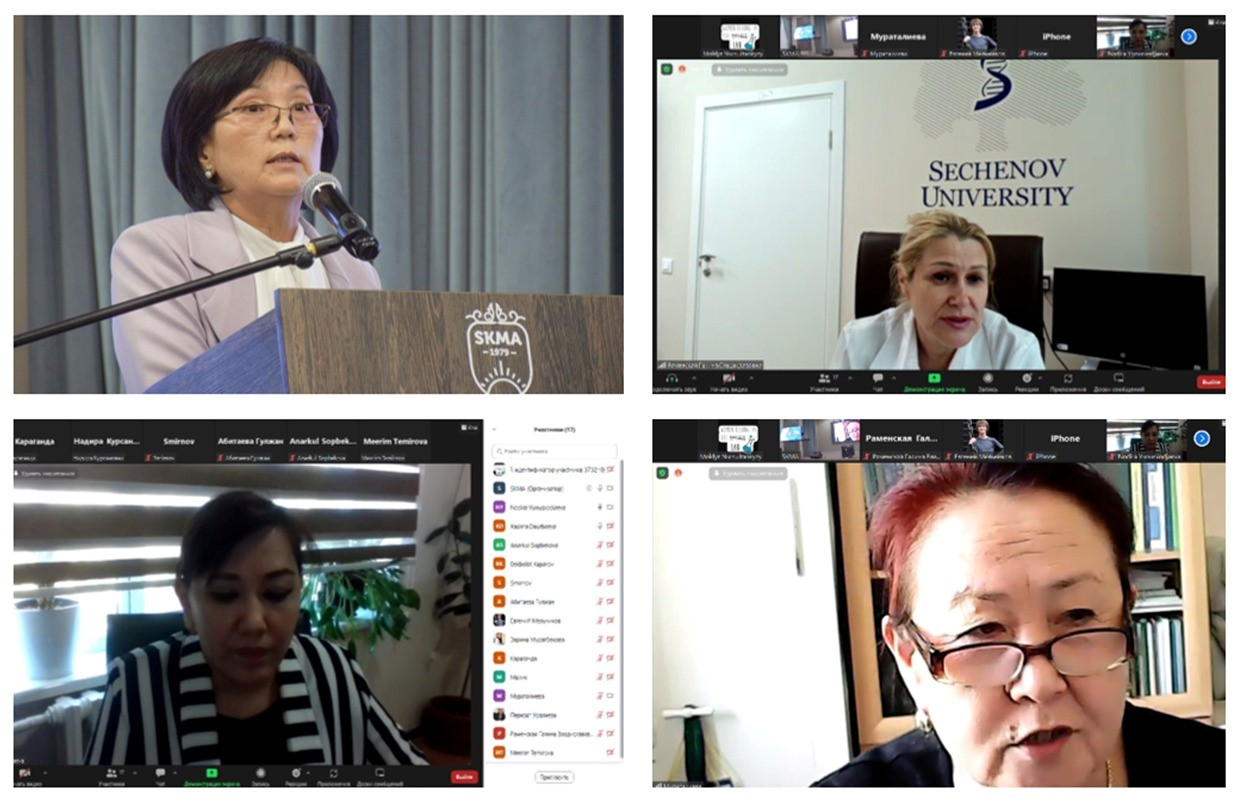
In the department, students undergo two types of industrial internships: "Toxicological Chemistry" and "Quality Control and Standardization of Medicinal Products." The "Toxicological Chemistry" internship consists of two sections: chemical-toxicological expertise and the diagnosis of acute poisonings. A total of 88 final-year bachelor's students from both regular and accelerated programs completed this internship. The internship sites included:
1. The Institute of Forensic Expertise of the Ministry of Justice of the Republic of Kazakhstan, Shymkent Branch of the Republican State Enterprise "Center for Forensic Expertise," Chemical-Toxicological Department.
2. T. Orynbayev Regional Center for Hyperbaric Oxygenation, Toxicological Department, Shymkent.
3. Republican Center for Mental Health in Shymkent, Clinical-Toxicological Department.
Since the previous academic year was transitional from one educational program to another, a total of 91 final-year students from both regular and accelerated programs, as well as 67 fourth-year students, completed the "Quality Control and Standardization of Medicinal Products" internship. The internship sites included:
1. Testing centers of the National Center for Expertise of Medicines, Medical Devices and Equipment (NCEM) in Almaty, Taraz, and Karaganda.
2. Testing center of the QCD and SETC, laboratories of the WOPLPF and WSPPF of JSC "Khim-farm," Shymkent.
3. Testing laboratory of LLP "BioEticа," Shymkent.
4. First Moscow State Medical University named after I.M. Sechenov, Moscow, Russia.
5. TashFarmI, Tashkent, Uzbekistan.
6. Kyrgyz State Medical Academy named after I.K. Akhunbaev, Bishkek, Kyrgyz Republic.
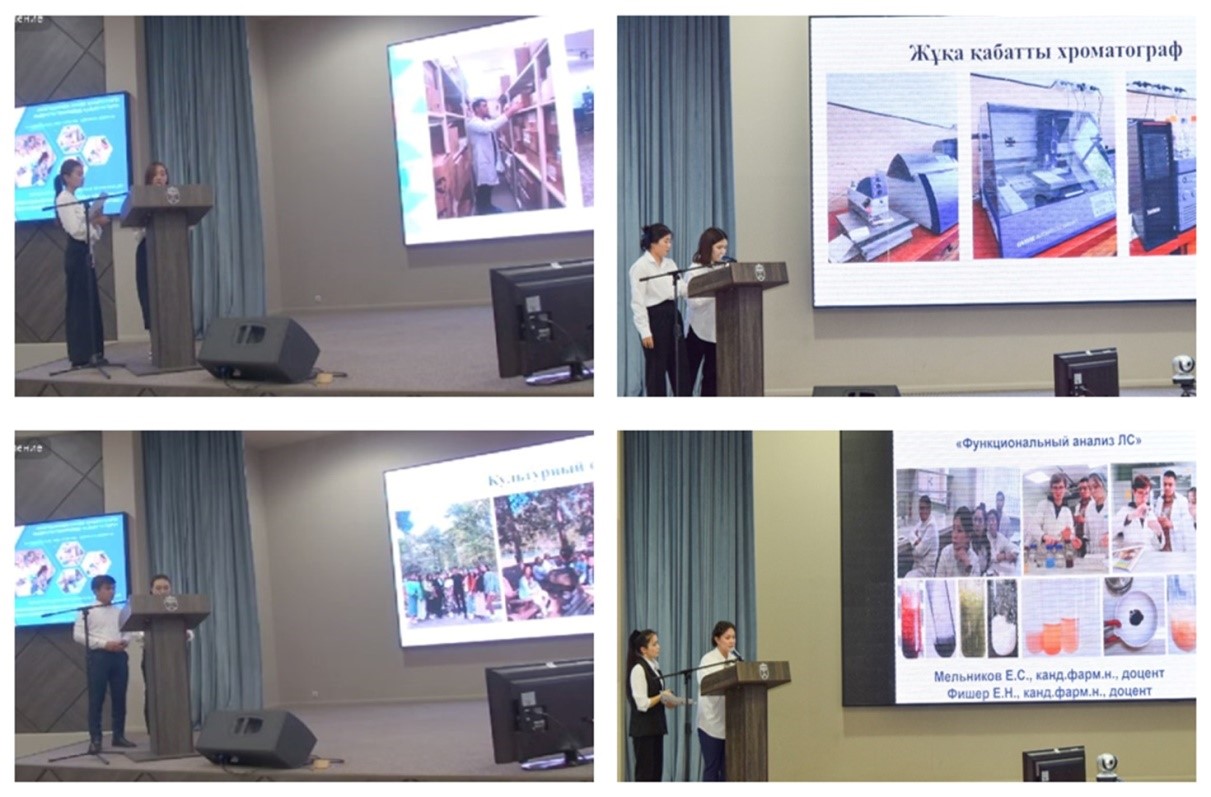
Following this, the student interns shared their experiences and insights, presenting interesting reports, captivating and colorful presentations, video trailers, and banners. Fifth-year students Oser A. and Kuznetsova K. discussed how their theoretical knowledge was deepened and supplemented, and their professional skills were reinforced during their internship in "Toxicological Chemistry." The everyday work of toxicological chemists at the production sites intrigued the students as they considered their future careers.
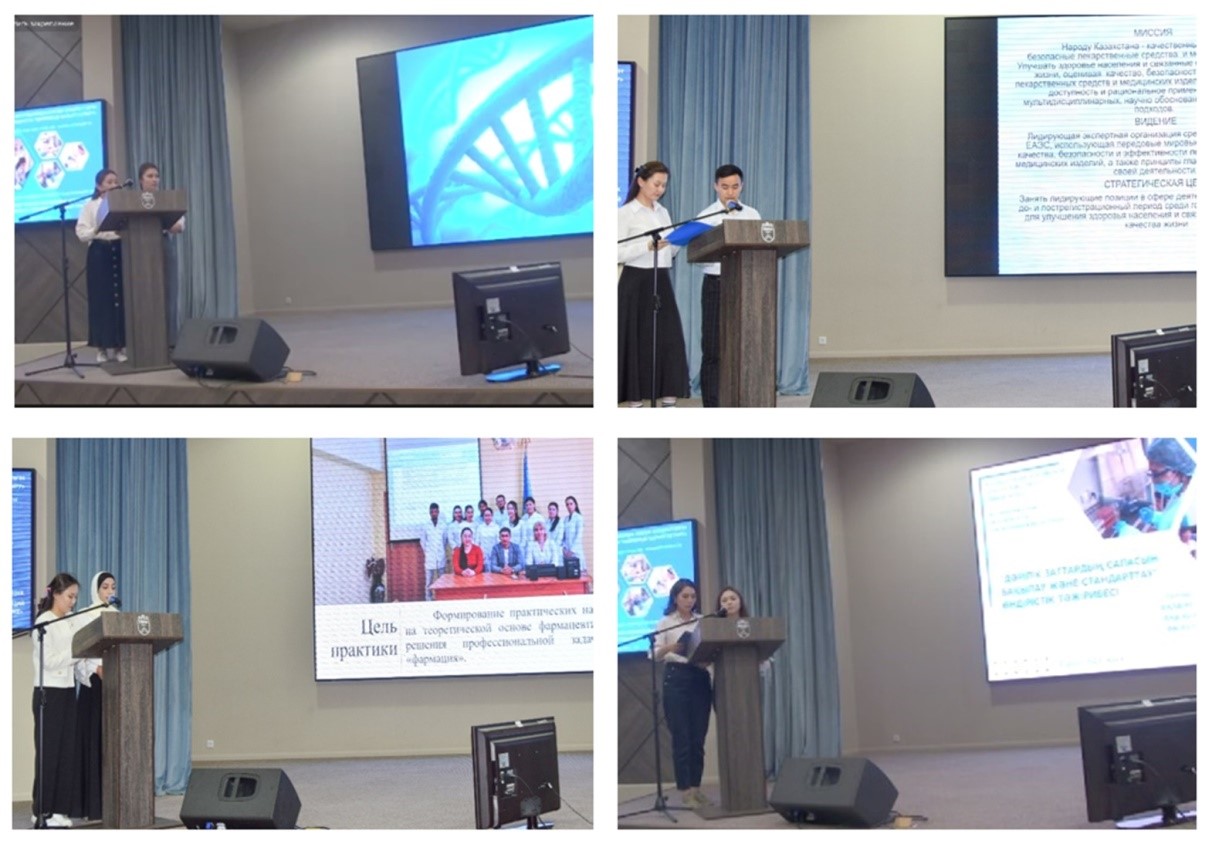
Practicants Turekulov S. and Isabayeva D. shared their experiences regarding the organization and completion of their internships at the National Center for Expertise of Medicines and Medical Devices (NCEM) in Almaty, while Gasanova L. and Amangeldi A. did the same for their internships in Karaganda. Regarding Taraz, Onalbek S., Anuar A., and Les A. conducted pharmacopoeial analysis of pharmaceutical products and medical devices using physicochemical methods. They also familiarized themselves with conducting microbiological purity and pyrogenicity tests using biological and microbiological analysis methods.
The internship program at pharmaceutical enterprises was exciting, with students actively participating in the day-to-day activities of various departments. Adilbekova A. and Kuantay A. presented their experiences at "Chempharm – Santo Member of Pholpharma Group," where they worked in the Quality Control Department, the Scientific Research Testing Center, and laboratories in production units №1 and №3 for liquid and solid pharmaceuticals. At "BioEticа," students worked in the testing laboratory for quality control of pharmaceutical products and medical devices produced by the company.
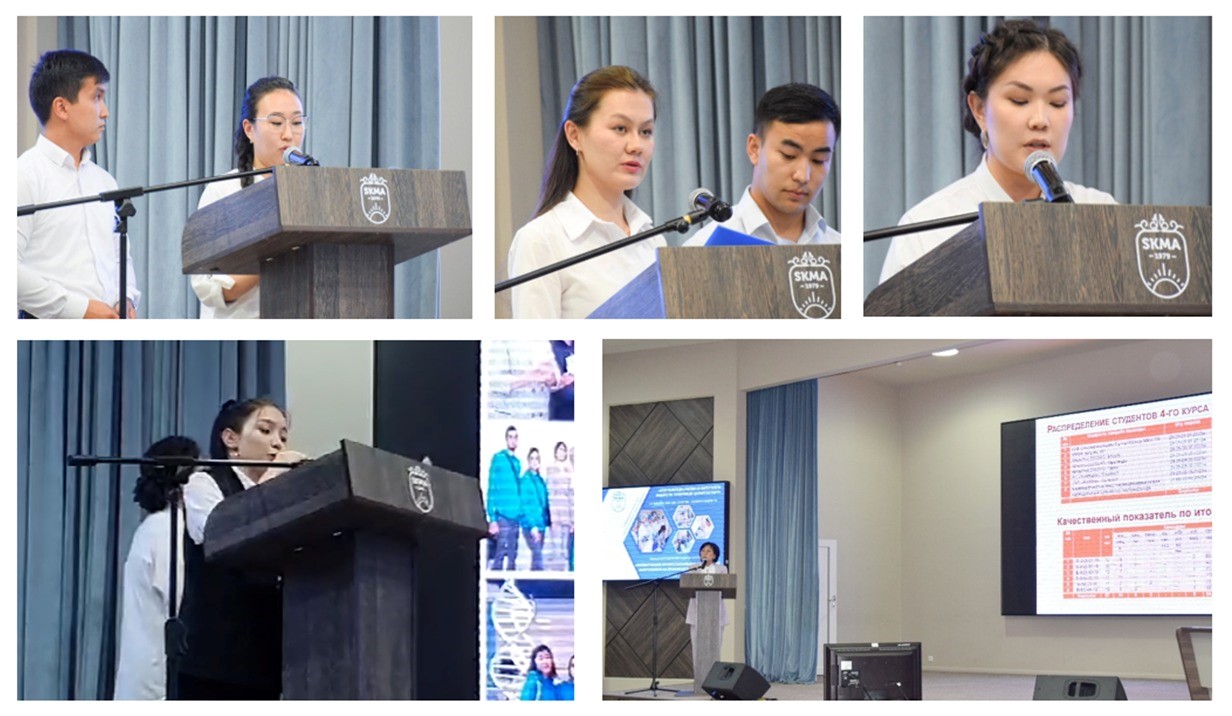
At the partner universities abroad, students had the opportunity to attend lectures and masterclasses by leading experts in pharmaceutical science and business. With the universities' coordination, interns also had the chance to work in the testing laboratories of functioning enterprises. Yan K. and Matkarim A. reported on their internships at the Tashkent Pharmaceutical Institute and the Scientific Center for Standardization of Medicinal Products. Kaukanova A. and Abdraman A. shared their experiences about internships at the Kyrgyz State Medical Academy named after I.K. Akhunbayev and the Central Control and Analytical Laboratory of the State Sanitary and Epidemiological Supervision of the Ministry of Health of the Kyrgyz Republic.
Practicants Rahmanova D. and Shaltaeva D. presented the outcomes of their internships at the First Moscow State Medical University named after I.M. Sechenov. In addition to the Department of Pharmaceutical and Toxicological Chemistry, students worked in the Pharmacokinetics Laboratory at the Center for Personalized Medicine of the Davydovsky City Clinical Hospital of the Moscow Department of Health and in the testing laboratory of "Center of Pharmaceutical Analysis" LLP.
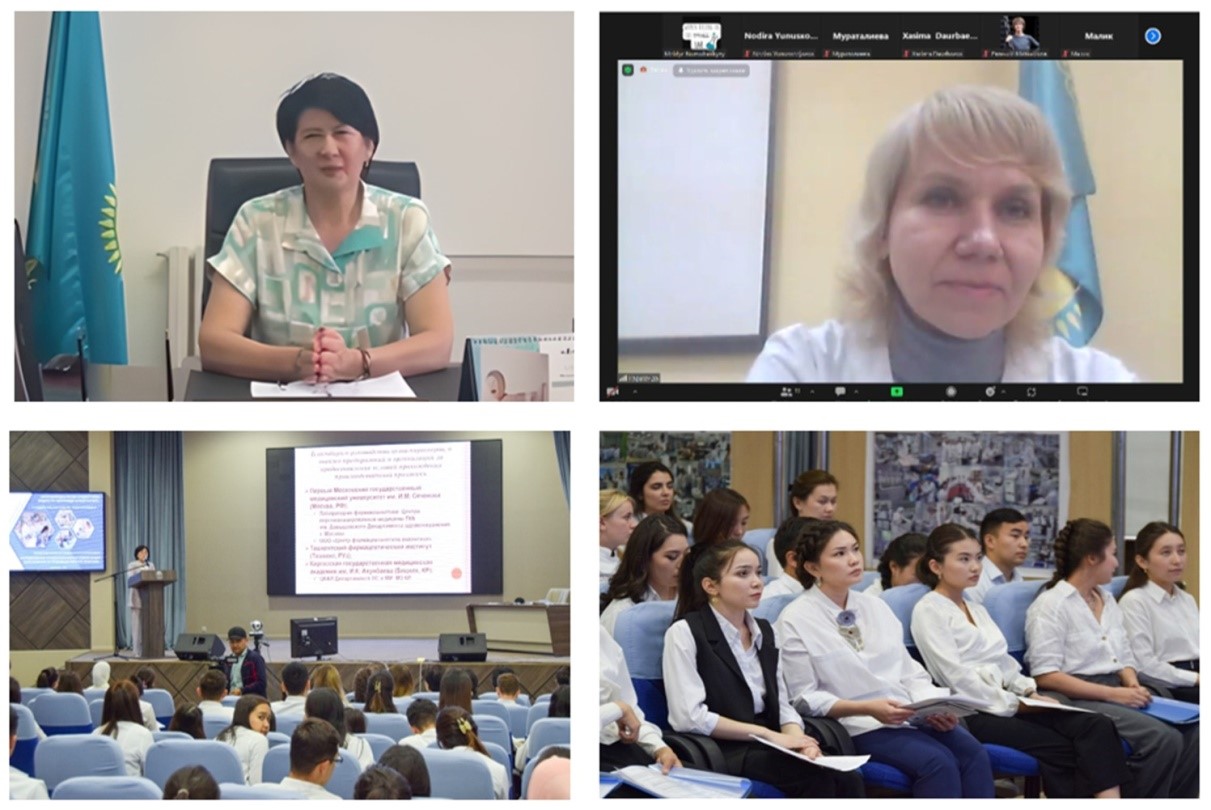
On behalf of the heads of the internship at the bases, the head of the Regional Branch of NCEM in Taraz Daurbaeva Kh.A., Coordinator of the Testing Center of the regional branch of NCEM in Karaganda N.N. Arkhipova, General Director of the Center for Pharmaceutical Analytics, Professor spoke Shokhin I.E., professor of Sechenov University Selivanova I.A., associate professors of the same university Melnikov E.S., Fisher E.N., leading researcher at the laboratory of pharmacokinetics of the State Clinical Hospital named after. Davydovsky DZ, Moscow Rodina T.A. etc. Managers from the bases noted the good level of theoretical training, high responsibility, discipline and diligence of students, their skills in working with modern analytical equipment, as well as communication skills in working in a team.
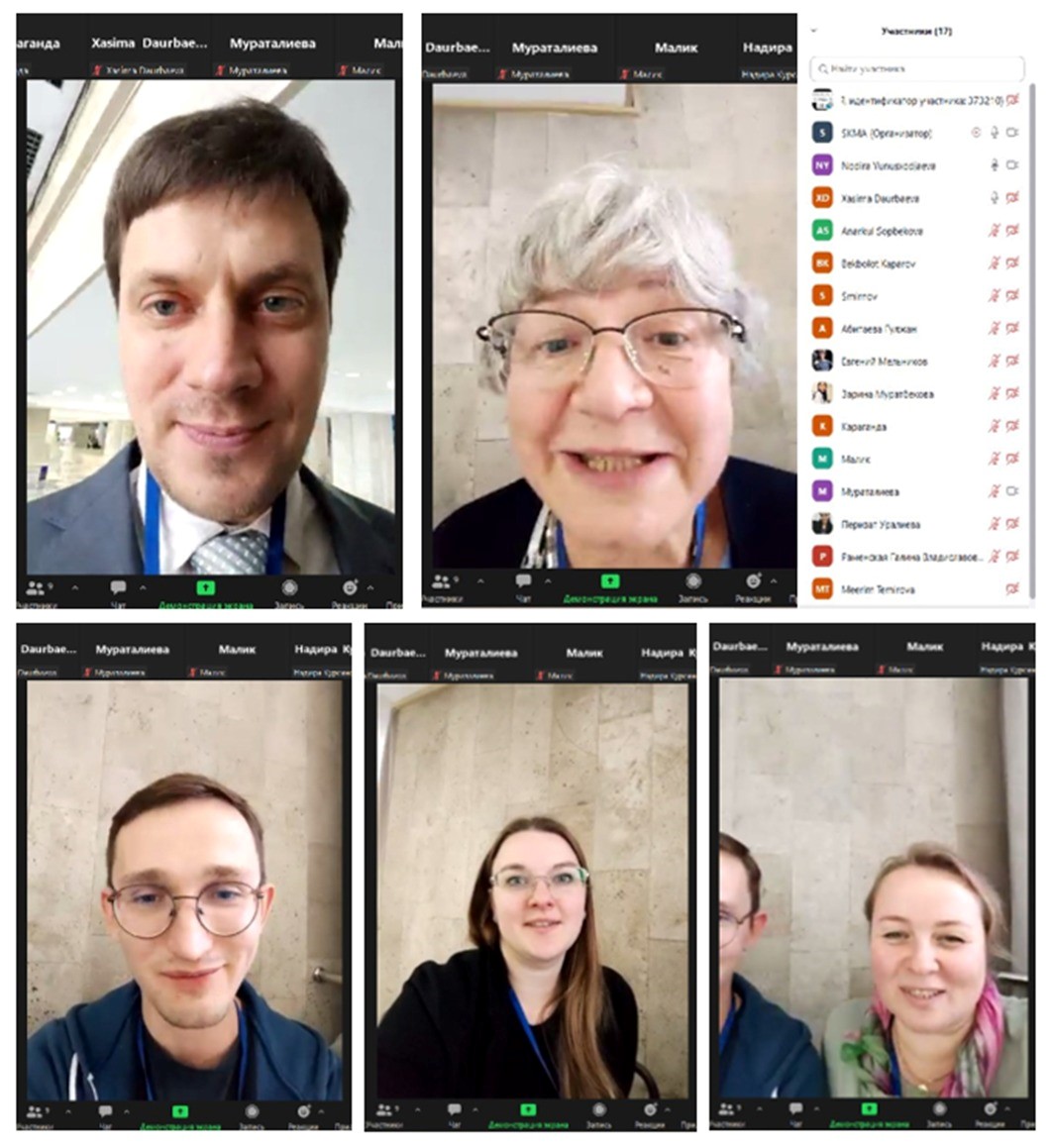
The organization and conduct of the international methodological conference was highly appreciated by the head of the Department of Strategic Development and International Cooperation of the Academy, Ph.D. Akhmetova A.A. and a member of the Union of Journalists of the Republic of Kazakhstan Shaimerdenova R.A.. The guests noted the role and place of internship in the educational process of training competent specialists for the pharmaceutical industry, the opportunity for students to travel to the most prestigious domestic and foreign internship bases.
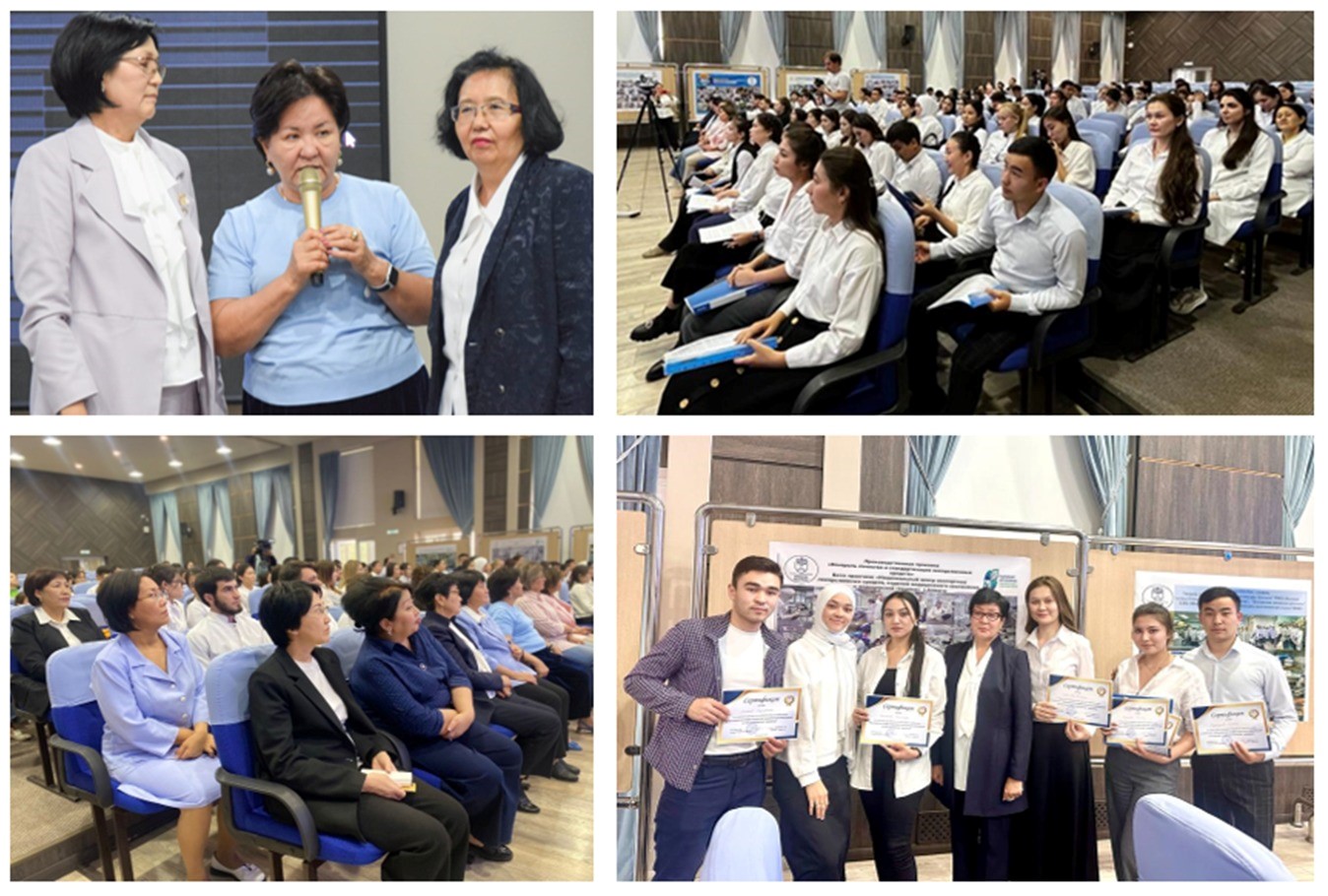
In conclusion, the interns successfully completed the internship program, achieving its objectives. They deepened their theoretical knowledge and reinforced their practical skills and abilities in the fields of chemical-toxicological expertise and the quality control and standardization of medicinal products. They worked with modern analytical equipment, including spectral, optical, electrochemical, and chromatographic methods.
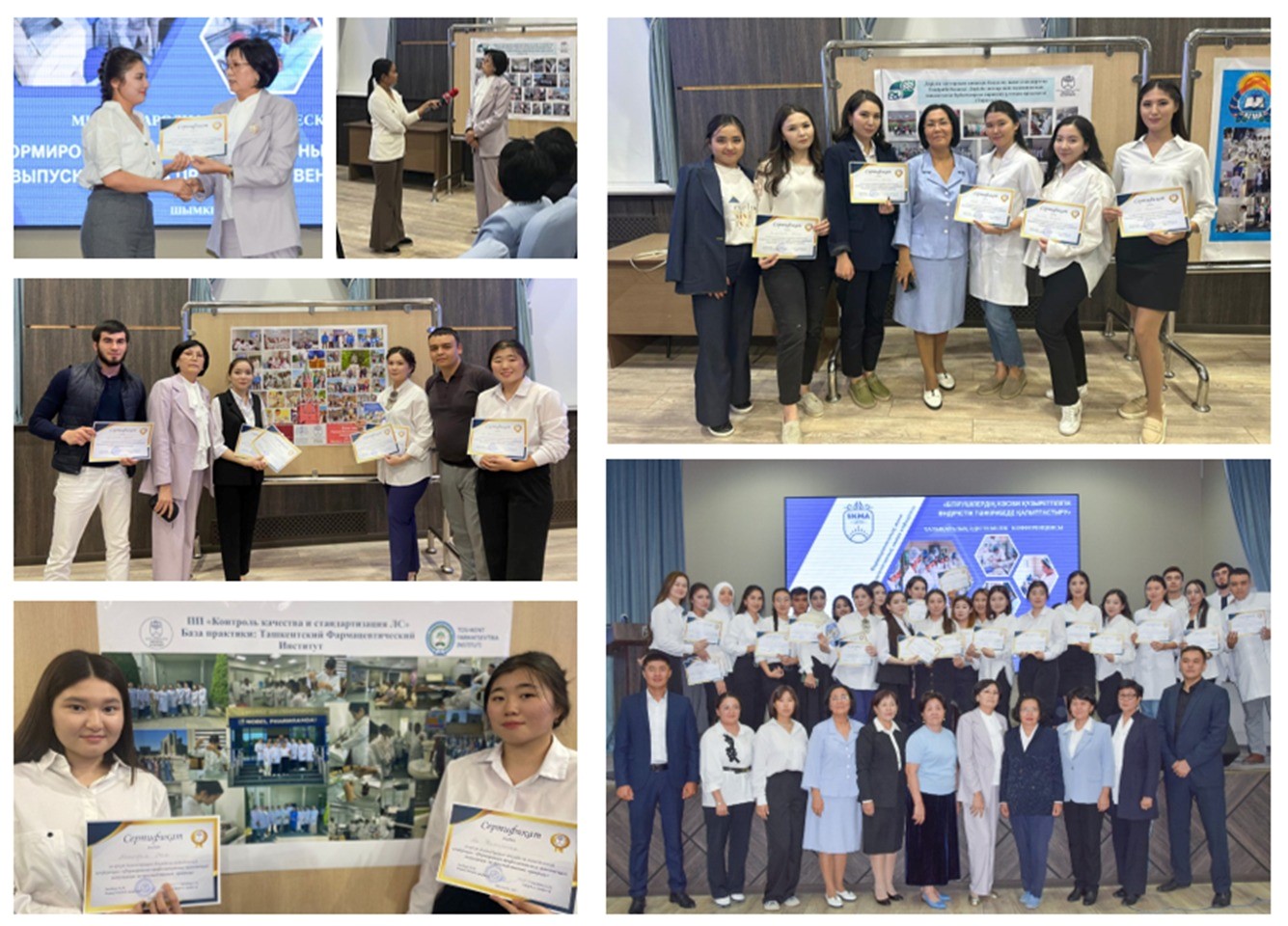
In light of this, the students and the Department of Pharmaceutical and Toxicological Chemistry extend their sincere gratitude to the leadership of all internship sites, both medical and pharmaceutical organizations and international partner universities, for providing these valuable opportunities. They also express their appreciation to the Academy's leadership for enabling students to intern at leading domestic and international sites.
 694 views
694 views
